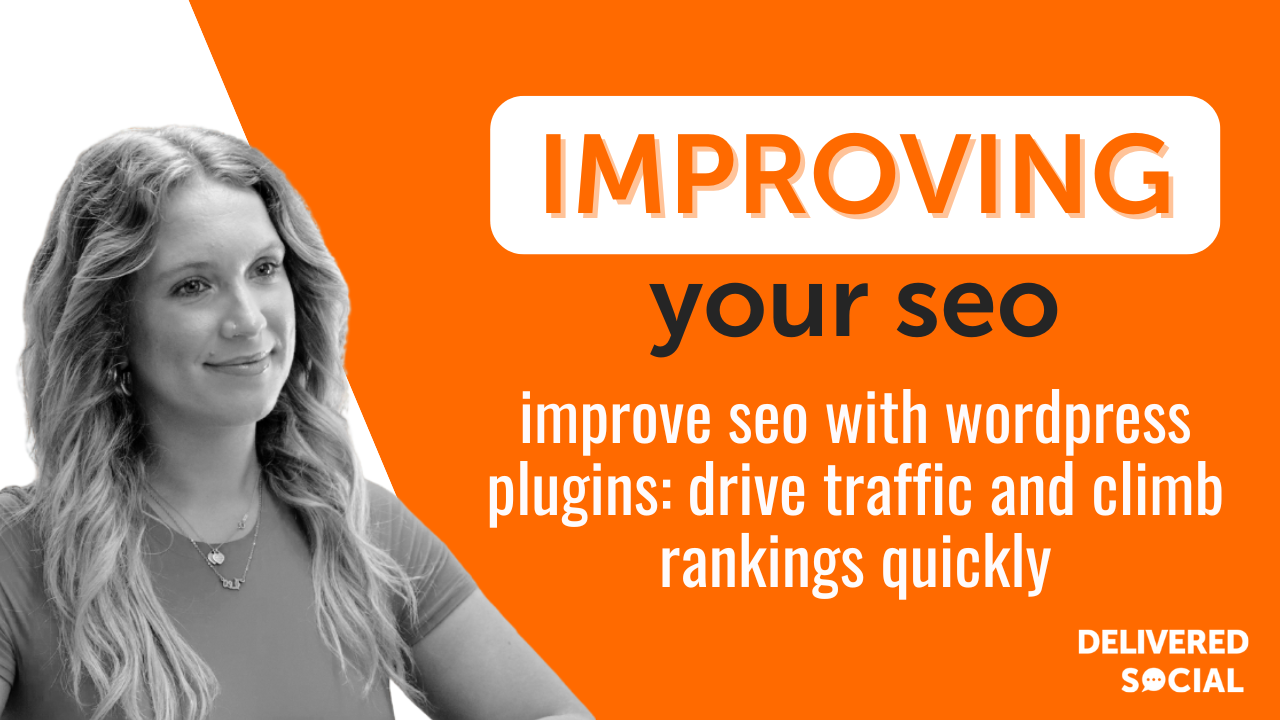
Getting more visitors to your site starts with strong search engine optimisation. If you’re using WordPress, plugins can help you handle key SEO tasks without needing to code. From creating sitemaps to improving page speed and fixing broken links, the right tools can make a big difference. Whether you’re managing a blog or running an online store, these plugins offer practical ways to improve SEO with WordPress plugins and reach more people through Google and other search engines. This article breaks down how these tools support better rankings and what features to look for when choosing one.
Choose the Right SEO Plugin
Selecting a strong SEO plugin is one of the first steps to improve your WordPress site’s performance. Tools like Yoast SEO and Rank Math offer essential functions that help organize content for search engines. These plugins allow users to edit meta titles and descriptions, which helps pages appear clearly in search results. With better control over this data, website owners can guide how their content shows up on Google.
Both Yoast SEO and Rank Math include tools that create XML sitemaps. A sitemap lists all pages on a site so search engines can find them faster. When a sitemap updates automatically, it saves time and ensures new content gets indexed without delay. This feature supports ongoing visibility for posts, products, or services.
Another helpful feature these plugins share is readability analysis. This tool checks how easy it is to read each page or post. It gives feedback about sentence length, use of passive voice, transition words, and paragraph structure. By following its suggestions, writers can make their text clearer and more effective for users.
Rank Math also includes keyword tracking tools that show how often focus keywords appear in key areas like headers or image alt tags. It lets users manage multiple keywords per post without needing extra extensions.
Yoast SEO offers breadcrumb navigation setup as well as social media previews for Facebook and Twitter posts. These features help shape how content appears when shared online.
To improve SEO with WordPress plugins, choosing the right tool matters from day one. Each option brings different strengths depending on what your site needs most — whether it’s better indexing, stronger keyword use, or improved clarity across written content. Testing both options before making a final choice can help ensure long-term gains in traffic and rankings without wasting effort or resources later on.

Big Data Domain Web Page SEO Concept
Improve SEO with WordPress Plugins
Using the right plugins in WordPress helps site owners take control of search optimisation tasks. These tools handle many functions that affect how pages perform in search results. They help manage titles, descriptions, and headings without editing code. This allows users to adjust on-page elements easily and focus on key ranking factors.
Plugins also simplify redirect management. When URLs change or pages move, broken links can harm visibility. A plugin can create 301 redirects quickly to send visitors and search engines to the correct location. This protects link value and prevents traffic loss from outdated links.
Another important function is schema markup integration. Schema helps search engines understand content better by adding structured data to a page’s HTML. Some plugins allow users to insert this data without writing any code manually. With schema in place, websites may qualify for rich results like review stars or event details directly in search listings.
Automatic XML sitemap generation is another benefit. Sitemaps tell crawlers which pages exist and when they were last updated. Many SEO plugins update these files each time new content gets published, so nothing is missed during indexing.
Some plugins also scan pages for missing alt text or poor internal linking practices. Fixing these issues boosts usability and supports better rankings over time.
To improve SEO with WordPress plugins, choose tools that support key technical features while keeping things simple to manage daily. Focus on those that offer real-time feedback, identify errors fast, and give clear options for fixing problems before they impact performance.
By choosing reliable plugins that align with your site’s needs, you reduce manual tasks while increasing accuracy across multiple areas of optimisation – giving your website stronger chances of gaining more visits through organic search sources over time.
Optimise Content with Real-Time Analysis Tools
Using real-time analysis tools can help shape your content before it goes live. These tools, available through several WordPress plugins, scan your post as you write. They check for keyword placement, heading structure, sentence length, and other common SEO elements. This process allows you to adjust your writing while editing instead of after publishing.
Plugins like Yoast SEO and Rank Math give immediate feedback on whether your primary keyword appears in the right areas—such as the title, introduction, and subheadings. They also monitor how often keywords show up throughout the text to avoid overuse or underuse. Some tools suggest where to add internal links or when a paragraph may be too long.
These features support better structure without slowing down the writing process. You see suggestions instantly and can make changes on the spot. This saves time compared to reviewing everything manually later.
Readability checks also come with many of these plugins. They point out if sentences run too long or if voice is passive more than needed. Shortening text or changing wording becomes easier when flagged in real time.
Writers benefit from having a checklist built into their editor screen rather than switching between tabs or apps. This keeps focus on content while still meeting search engine requirements.
Real-time analysis ensures every blog post has a chance to perform better before it’s even published. These tools help maintain consistency across all your pages by applying the same standards each time you write.
To improve SEO with WordPress plugins, using content analysis during editing gives you control over optimisation early in the process. Instead of guessing what works after hitting publish, you’re already aligning with known practices that support visibility and traffic growth for each article posted on your site.
Boost Site Speed with Caching Plugins
Fast websites keep visitors longer. Search engines also use speed as a ranking factor. A slow site can push users away and lower your position in search results. To fix this, install caching plugins that store static copies of pages. These tools reduce the time it takes for content to load.
W3 Total Cache and WP Super Cache are two well-known options. They make stored versions of each page so the server doesn’t repeat tasks every time someone visits. This reduces pressure on your hosting and helps pages appear faster.
When a user opens a page, instead of pulling data from scratch, the plugin shows them a saved version. This saves time and lowers bounce rates. Lower bounce rates show search engines that people stay on your site longer, which may help rankings improve.
Faster load times also help mobile users who often have slower connections than desktop users. If they don’t wait long for pages to open, they’re more likely to continue browsing or buying something from your website.
Caching plugins also often include extra features like file compression or database cleanup tools. These add-ons support better performance without needing manual setup every time you update content.
To improve SEO with WordPress plugins, start by installing one strong caching tool and configuring it based on your hosting needs. Test different settings using free tools like GTmetrix or PageSpeed Insights to measure gains in speed after activation.
Regular updates keep these plugins working well with new themes or other extensions you may be using on your website, helping maintain consistent performance over time without added effort.
Using caching not only boosts loading times but also supports better visibility in search engines through improved technical health of the site overall.

Leverage Internal Linking Suggestions
Internal links help search engines understand the structure of your website. They also guide visitors from one page to another, increasing time on site and reducing bounce rate. Some SEO plugins offer link suggestions as you create or edit content. These tools scan existing pages and recommend relevant posts or pages to connect.
By using these features, you can quickly build links between related topics. You don’t need to remember every article on your site. The plugin shows options based on keywords and context, saving time and improving accuracy. This method creates a network of connected content that helps both users and search engines move through your site.
Suggested internal links also support important pages by passing authority from one post to another. When older posts link to newer ones, it signals value to search engines. This can improve how often those newer pages appear in results.
Some plugins even highlight orphaned content—pages with no internal links pointing to them. Once identified, these pages can be linked from stronger ones, giving them more visibility and helping them get indexed faster.
Using suggested internal linking also reduces broken paths across the site over time. As new articles get published, they can be linked back within older high-traffic posts automatically or manually.
To improve SEO with WordPress plugins, pick tools that provide link recommendations inside the editor itself. This way you avoid switching tabs or performing manual searches each time you write something new.
A strong internal linking setup makes it easier for crawlers to find all parts of a website without missing key sections. It also helps readers discover more useful information without needing multiple searches or clicks outside your domain.
Plugins that automate this process allow writers and editors to maintain consistency across hundreds of posts without extra effort during updates or rewrites.
Automate Image Optimisation for Faster Loading
Large image files slow down websites. Slow pages lead to higher bounce rates and fewer views. Search engines notice load times when ranking content. To increase speed, WordPress users can rely on tools that handle image compression automatically.
Plugins like Smush or ShortPixel reduce file sizes without changing how the images appear on screen. These tools scan every image uploaded to your media library and compress them in the background. This process saves time and removes the need for manual editing before uploading any visuals.
Smush allows you to bulk optimise existing images with one click. It also supports lazy loading, which delays image rendering until a user scrolls down the page. This lowers initial load time and improves performance metrics tracked by search engines.
ShortPixel offers both lossy and lossless compression options depending on what works best for your site’s needs. It also supports WebP, a modern format that loads faster than traditional JPEG or PNG files while maintaining clarity.
By reducing file size, these plugins help improve Core Web Vitals scores—key factors Google uses in its ranking system. Faster sites often see higher placement in search results because they offer better experiences for visitors across devices.
Using either plugin regularly ensures ongoing optimisation as new media is added over time. You don’t need advanced knowledge or technical setup; once installed and configured, they run consistently with little effort required from you.
This method helps Improve SEO with WordPress plugins by making sites faster and more efficient without changing content structure or design elements. Better speed means more engagement, which can lead to increased visibility across search platforms over time.
Track Performance with Integrated Analytics
Using WordPress plugins to connect tools like Google Analytics or Search Console helps monitor how your site performs. These plugins allow you to see which pages attract visitors, where traffic comes from, and what content keeps users engaged. By reviewing this data inside your dashboard, you can quickly adjust your SEO strategy.
Plugins such as MonsterInsights or Site Kit by Google make it easier to link tracking tools without editing code. Once connected, these tools show real-time metrics like bounce rate, time on page, and visitor location. You can also check keyword rankings and see which search queries bring users to your website. This information helps decide which topics need more focus or updates.
By checking traffic sources regularly, it’s possible to spot drops in performance early. If a blog post stops ranking well for a keyword, the plugin may reveal why—such as reduced clicks from search engines or lower engagement rates. This makes it easier to refine content and update elements like titles or metadata.
To improve SEO with WordPress plugins, use analytics insights to guide decisions rather than guessing what works. For example, if certain posts get high click-through rates but low time-on-page stats, that could mean the content does not match user intent. With this knowledge, changes can be made that better align with what readers expect.
Tracking data over time also shows whether new strategies lead to better results. After updating keywords or publishing fresh content, analytics plugins help measure whether rankings improve or traffic grows as expected. This allows for smarter planning based on facts instead of assumptions.
Staying informed through integrated analytics supports long-term growth by showing exactly where attention is needed most across your site’s pages and posts.
Maximise Your Website’s Potential with the Right Plugin Strategy
By strategically integrating the right tools, you can transform your WordPress site into a powerful SEO machine. Choosing a robust SEO plugin, optimising content in real time, and leveraging internal linking suggestions all contribute to better visibility and higher rankings. Enhancing site speed with caching plugins and automating image optimisation ensures users enjoy faster load times—an essential factor for both user experience and search engines. Finally, tracking performance through analytics helps refine your efforts over time. To truly improve SEO with WordPress plugins, it’s about aligning functionality with strategy to drive measurable results and long-term growth.
Interested In Working Together?
Introducing Delivered Social. We're The Most-Rated Digital Agency In Surrey & Hampshire – We've Got To Be Doing Something Right.
Delivered Social is a digital marketing agency with one mission—to help businesses grow. We're famous in Guildford and Portsmouth for our social clinics. We believe in free advice. We build lasting relationships because our team prides itself on being helpful, which our clients appreciate.
If you are looking for a new website or an agency to manage your social media presence, we can help.
If you need something slightly different, here's a super handy list of all our services, or you can always email us.























